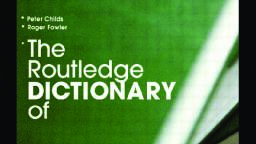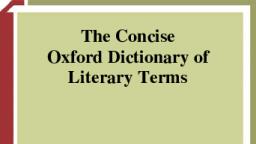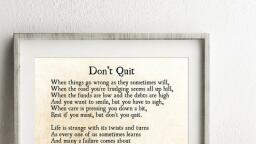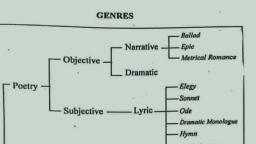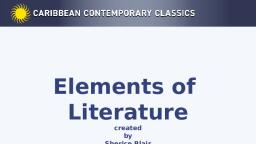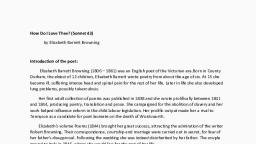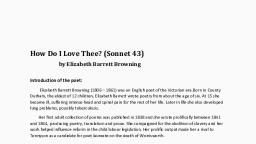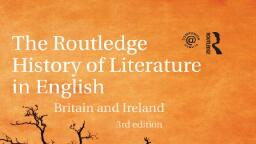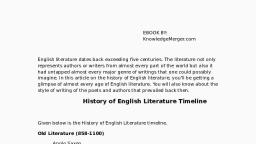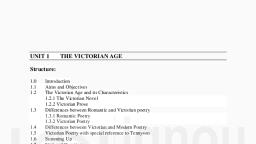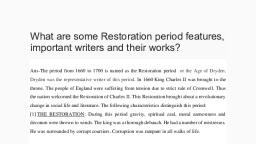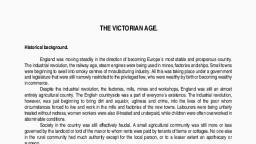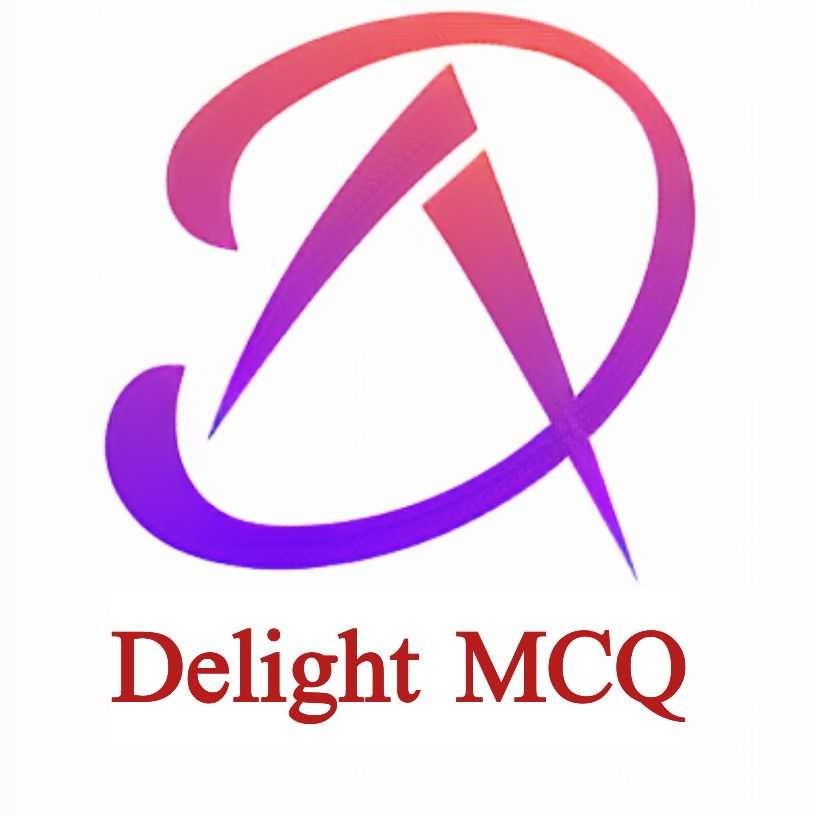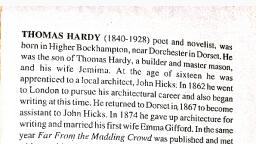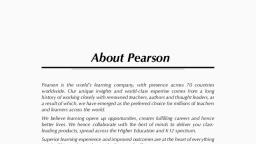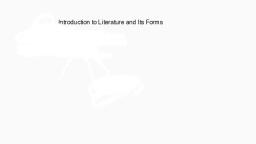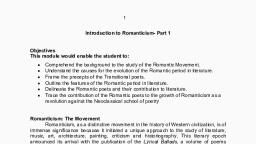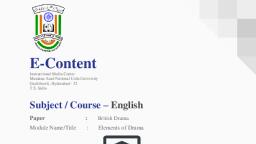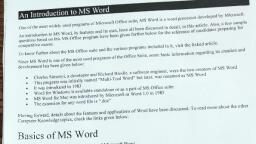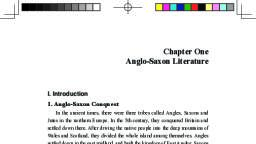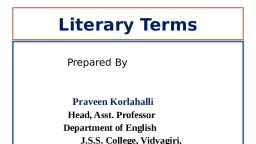Page 1 :
VICTORIAN PERION AND ITS SALIENT FEATURES, , The beginning of the Victorian Period is dated sometimes as 1832 (the passage of the, first Reform Bill) and sometimes as 1837 (the accession of Queen Victoria). It extends to the, death of Victoria in 1901. But when we refer the history book of W. J. Long and literary terms, of M. H. Abraham, we find that the period between 1850 -1900 is regarded as the Victorian, Period, which is also known as the Age of Compromise and the Age of Peace and Prosperity., When Victoria came on the throne of England in 1837, English literature seemed to have, entered into a period of lean years. Only sweet memories and poetic fruitfulness by the, Romantic poets were remained, while the poets had passed away. It seemed that no writer was, there in England to fulfill their place. But later on we find that Alfred Tennyson and Robert, Browning have tried to fulfill that empty place. The main characteristics of this Age are:, , , The progress of democracy, , , , Peace and prosperity, , , , The slaved had been freed, , , , Social unrest, , , , Spread of education, , , , Industrial revolution, , , , Humanistic approach, , , , Age of compromise, , This Period was marked by freedom from wars and internal strife. The calmness of the, Age made the people lovers of tradition rather them those longing for revolution or any radical, changes. It was the time of the advancement of science and the development of a scientific, temper of mind. But it brought a challenge to the old values of life and the Christian way of life,, values, assurance regarding redemption and salvation, like genesis etc. began to be looked upon, with an element of doubt. Commerce and trade had greatly progressed because of the Industrial, Revolution, but finally it resulted into social and economic revolution, rise of new class of, factory and mill owners, class division etc. The factory and mill owners got wealth never dreamt, of it before and another class was of that workers and laborers. This started the business of, exploitation of the poor class., This Period is known as the Age of Compromise because; during 18th century religion, was in the center. The rules regarding religion and church were strictly followed. The church, authority was very powerful. While during the Victorian Period the science was developing., Gallilio had proved that it is earth that revolves round the sun, not the sun. On the one hand 50%, of the English were the believer of the Christianity and the Bible and the other 50% of the, English were under the influence of the advancement of Science. Science had challenged the old, order of living the life and Christian way of life, values, the assurance regarding redemption and, salvation were being challenge and looked with the element of doubt. That is why this Age is, called the Age of Compromise which was between the religion and the science., The year 1870 is often used to divide the Victorian Period into two parts i.e. “early, Victorian” and “late Victorian”. Much writing of the period, whether it is imaginative or, didactic, in verse or in prose, reflected current, social, economic, and intellectual problems. For, example, the industrial revolution and its effects on the economic and social structure; rapid, 1 |Page, , Dr. V. R. Godhaniya Post Graduate Centre of English-Porbandar
Page 2 :
urbanization and the deterioration of rural England; massive poverty, growing class tension, and, pressures toward political and social reform; and the impact on philosophy and religious, fundamentalism of the theory of evolution. It was the Age of immense and self critical literary, activity. We find the references of all these things in the literature of this particular Age., Literary Trends of the Victorian novel:, , , Lose Plots (Fielding’s tradition of writing novel), , , , A mixture of strength and weakness, , , , Entertainment value, , , , Panoramic value, , , , Immense variety, , , , Imaginative rendering of reality, , , , Humor, , , , Characterization, , , , Lack of high artistic standard, , The Victorian Writers:, , , The Victorian Novelists, 1. Charles Dickens (1812-1870), , His famous novels are The Pickwick Papers (1837), Oliver Twist (1838, was first, published with the title Oliver Twist with a subtitle, The Parish boy’s Progress ), Nicholas, Nickleby (1839), The Old Curiosity Shop (1841), Barnaby Rudge (1841), Martin Chuzzlewit,, Dombey and Son (1844), David Copperfield (1850) , Bleak House (1853), Hard Times (1854),, Little Dorrit (1857), A Tale of Two Cities (1859), Great Expectations (1861), Our Mutual, Friend (1865), The Mystery of Edwin Drood (unfinished, 1870). Apart from these he has also, written many short stories, essays and travel books. Dickens has given his many literary, contributions with the pen name ‘Bos’, 2. Thomas Hardy (1840-1928), His well-known novels are The Desperate Remedies (1871, first novel), Under the, Greenwood Tree (1872, first Wessex novel), Far from the Madding Crowd (1874), The Return, of the Native (1878), The Mayor of the Casterbridge (1886), Tess of the D’Urbervilles (1891),, Jude the Obscure (1895, last novel). Apart from these he has also written poems and short, stories., 3. Willliam Makepeace Thackeray, He is mainly famous for his novel Vanity Fail., 4. Charlotte Bronte, Her pen name is Currer. She is famous for her three novels, The Professor, Jane Eyre,, Shirley, and Vilette., 5. Emile Bronte, Her pen name is Ellis. She is famous for her only great classic novel Wuthering Heights., 2 |Page, , Dr. V. R. Godhaniya Post Graduate Centre of English-Porbandar
Page 3 :
6. Anne Bronte, Her pen name is Action Bell. Her famous novels are Agnes Grey and The Tenant of, Wildfell Hall., 7. George Eliot (1819-1880), She stands at the gateway between the old novel and the new, no unworthy heir to, Thackeray and Dickens and no unworthy forerunner of Hardy and Henery James. Her most, talked about novels are Adam Bede (1859), Mill on the Floss (1860, it is a spiritual, autobiography), Silas Marner (1861), Middlemarch (1872), Romola (1863) , etc. George Eliot, is her pen name but her original name is Mary Ann Evans., 8. Jane Austen (1775-1817), We can say that Austen belongs to the later part of the Romantic Age; it means the earlier part of, the Victorian Period. Her greatest novels are Sense and Sensibility (1811), Pride and Prejudice, (1813), Mansfield Park (1814), Emma (1816), Northanger Abbey (1818), Persuasion (1818)., 9. Mrs. Elizabeth Gaskell (1810-1865), She has written her novels like Mary Barton (1948) and North and South (1865) as an, instrument of social reform., 10. Charles Reade (1814-1884), 11. Charles Kingsley (1819-1875), 12. Thomas Love Peacock (1785-1868), 13. Anthony Trollope (1815-82), 14. George Meredtith, He is the founder of the psychological novel. His chief novels are The Shaving of, Shagpot, The Ordeal of Richard Feverel, Evan Harringtion, Rhoda Fleming, The Egoist,, Diana of the Crossways, etc., Note:, To solve problems of the Age, there appeared renamed political economists like James, Mill, John Stuart Mill, Malthus Ricardo, who were inspired by Adam Smith’s ‘Wealth of, Nation’. But later on they, instead of coming to the rescue of the exploited section of society,, sided with the exploitative classes. As a reaction against them some saviors like Ruskin and, Carlyle appeared. They attacked science for its harmful effect on society. Carlyle was wrong in, thinking about the necessary of slavery and its benefit, but his was against the exploitation of the, poor and the industrial workers by the rich classes., Dickens, very effectively revolts against such a new system in his literary style. In, ‘Oliver Twist’, he presents the seamy (immoral or sordid/ dishonest) side of children being, exploited by the underground world. The way Oliver demanded for more soup in the orphanage, is perhaps the first protest against the exploitative practices of the age. With the background of, industrial revolution and utilitarian philosophy in ‘Hard Times’, Dickens directly opposes, Jeremy Bentham’s and Adam Smith’s theory of education and economy., Matthew Arnold is a well-known critic of this Age. On one hand capitalism,, industrialism and materialism came in the existence which gave rise to poverty, class tensions, and social insecurity. There was loss of ideals and cultural values. At that time Arnold gives, 3 |Page, , Dr. V. R. Godhaniya Post Graduate Centre of English-Porbandar
Page 4 :
importance to the role of literary criticism of his Age against the Romantic Criticism. We can, see this in his essay, ‘The Function of Criticism in the Present Age’. Here, he mainly talks, about his contemporary England. He finds that the British society, specially the middle class is, materialized and brutalized. It has no cultural ideas and ideals are at a discount. He finds cultural, anarchy everywhere and his purpose is to put an end to this anarchy. And that is why he has, mingled the cultural issues with criticism., , , The Victorian Poets, , When Victoria came on the throne of England in 1837, English literature seemed to have, entered into a period of lean years. Only sweet memories and poetic fruitfulness by the, Romantic poets were remained, while the poets had passed away. It seemed that no writer was, there in England to fulfill their place. But later on we find that Alfred Tennyson and Robert, Browning have tried to fulfill that empty place. Let we have a little bit knowledge of the, Victorian poets., 1. Lord Alfred Tennyson (1808-1892), Tennyson stood as the summit of poetry in England. For nearly half a century, he was, not only a man, and a poet, but the voice of all people, expressing their doubt and faith, grief and, triumphs. In his poetry we find:, , , Dreaminess of Spenser, , , , Majesty of Milton, , , , The natural simplicity of Wordsworth, , , , The fantasy of Blake and Coleridge, , , , The melody of Keats and Shelley, , , , Narrative vigor of Byron, , Only the dramatic power of the Elizabethan Age was lacking. In ‘Ulysses’ he has taken, the subject of ‘hunger heart’ for the adventurous life. He writes,, “And this gray spirit yearning in desire,, To follow knowledge like a sinking star…”, His poem Locksley Hall (1842) is full of the restless spirit of “young England” and of its, faith in science, commerce, and the progress of mankind. In The Princess the poet grapples with, one of the rising questions of the day–that of the higher education of women and their place in, the fast changing conditions of modern society. Maud deals with the patriotic passion of the, time of the Crimean War and reflects the mammon worship of the day. It is a mono-drama., Idylls of the King deals with medieval machinery. It carries 12 poems. Though he was from an, aristocratic family, he was profoundly interested in common people and common things which, we find in his poems like The May Queen, Enoch Arden, Dora etc. Enoch Arden deals with, his theory of love after marriage. In Crossing the Bar we find the poets keen desire for the, oneness with God where he writes,, “I hope to see my pilot Face to face When I have crost the Bar”, His other poems include The Lady of Shalott, Break, Break, Break. However is mainly, famous for his In Memoriam. It is a collection of 131 poems. It deals with the great conflict of, the age between doubt and faith. It is an elegy composed to many short lyrics. It also laments on, death of his closest friend Arthur Henry Hallam. He had been awarded with the Chancellor’s, 4 |Page, , Dr. V. R. Godhaniya Post Graduate Centre of English-Porbandar
Page 5 :
Medal for his poem Timbuctoo at university. In 1850, he became poet-laureate to succeed, Wordsworth. His oft quoted line is from Ulysses ,, “…To strive, to seek, to find and not to yield.”, 2. Robert Browning (1812-1889), He was the lover of music. His famous poems are A Toccato of Galuppi, The Last Rider, Together, My Last Duchess, Rabbi Ben Ezpa, Fra Lippo Lippa, A Death to the Desert, Men, and Women (a collection of poems) etc. He was the supreme master of the Dramatic, Mononlogue. He was an undying optimist, who said,, “God is in his Heaven,, All’s right with the world”, (Pippa Passes), 3. Matthew Arnold (1822-1883), He is a poet cum critic. His famous poems are Rugby Chapel, Thyrsis, Scholar Gypsy,, Dover Beach, Soharab and Rustam, Shakespeare (it is a sonnet), etc. Thyrsis is a great pastoral, elegy and in this poem he mourns the death of his friend, Arthur Clough. Rugby Chapel is also, his elegy in which he mourns the death of his father. However, he is mainly famous for his essay, (critical works) like, Culture and Anarchy, Literature and Dogma., 4. Arthur Hugh Clough (1819-1961), He is famous for his poem The City of Dreadful Night. It deals with the note of, insomnia and nightmarish pessimism. He believed that the appearance of progress was a mere, illusion., 5. Edward Fitzgerald (1809-1888), He is mainly famous for his verse translation of the Persian Rubaiyat of Omar, Khayyam. His pessimism was inherent in his acceptance of the life’s purposelessness. His, pessimism was the cause of his epictureanism. Wine, women and music were the chief objects, of his pleasure in the life as he believed that the life was sort and may end at any moment., 6. The Pre-Raphaelite Poets, The Pre-Raphaelite was a movement. It was begun in 1848 by three painters in England, including Dante Gabriel Rossetti. It aimed at a return to older principles in painting, but as, Rossetti and other followers like William Morris and Suinburne were also gifted writers, they, aimed to bring about a change in literary manner as well., , , The Victorian Essay and Pross Writers, , This period is also famous for essays and prose works. The famous prose writers of this, age are:, 1, , R. L. Stevenson (1850-1894), , An Inland Vovage, Travels with a Donkey, Familiar Stuties of Men and Books,, Memories and Portraits, etc. are his finest collections of essays., 2, , 5 |Page, , Thomas Carlyle (1795-1881), , Dr. V. R. Godhaniya Post Graduate Centre of English-Porbandar
Page 6 :
He is famous for his works like Hero and Hero-Worship, Oliver Cromwell’s Letters,, Speeches, Past and Present, Life of Frederick, etc. He worked as teacher and prophet as well,, therefore he was called “the Sage of Chelsea”., 3, , John Ruskin (1819-1900), , He is known for his short works like Seven lamps of Architecture (1849), The Stones of, Venice, Unto the Last (it contains 4 essays), The Crown of Wild Olive and Sesame and Lilies., 4, , Lord Babingtin Macaulay (1800-59), , He is mainly famous for his work History of England. It is written in 5 volumes. He is, also famous for his Essays on Milton., , , The Victorian Playwrights:, 1, , George Bernard Shaw (1856-1950), , His first comedy is Widowers Houses (1893). Then he gave a series of plays like The, Philanderer, Arms and Superman, The Doctor’s Dilemma, Getting Married, Fanny’s First, Play, Androcles and the Lion, Pygmalion, Heartbreak House, Back to Methuselah, Saint, Joan (for this, he received the Nobel Prize in 1925), The Apple Cart, Too True to be Good,, Geneva., 2, , John Galsworthy (1867-1933), , His novel The Man of Property has made him widely known. However, he is better, known as a playwright than a fiction writer. His famous for his problem plays. His famous plays, are Strife (for this work hi received the Nobel Prize for Literature), Justice (1910), Loyalties,, The Silver Box, Escape, etc., , , The Victorian Pessimistic Writers:, , Matthew Arnold, James Thompson, Edward Fitzgerland, Thomas Hardy, A. E., Housman, Davidson, Dowson, etc are known as the pessimistic writers of the Age., Conclusion:, Thus, this period has given a great contribution to the English literature in the form of, novels, essays, critical essays, poetries and plays as well. However, it is the novels of this period, that attracts the reader to read and re-read the works of the great writers of the Age. No doubt, that whenever novel as a literary term is thought about or talked about, four wheels of novel, would come first to our mind that remind the names of great novelist like, Samuel Richardson,, Lawrence Sterne, Tobias Smollett, and Henry Fielding. However, the reader would love more to, read the novels of the particular Victorian Period. We find a good chemistry between the, reflection of the image of the contemporary Age and the creative faculty of the writers with their, free expression of the imagination and emotion that touch the reader of all Ages and of all age., , 6 |Page, , Dr. V. R. Godhaniya Post Graduate Centre of English-Porbandar




